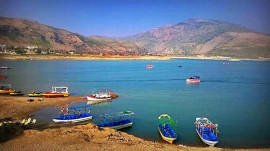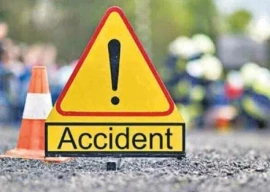
When institutions fail to do their duty, they provide the space for the judiciary to intervene, former Supreme Court Bar Association president Hamid Khan said on Friday.
Speaking about the Importance of Rule of Law in a Society at the Forman Christian College, Khan said courts, sometimes, take action on issues that not usually taken up by them.
Khan said the rule of law offered stability to society. “It helps prevent anarchy – which is something we all fear…,” he said. He said in countries where the rule of law existed, institutions such as the police are unable to oppress people.
If laws are enforced, all spheres of life, including social, political and economic, progress, Khan said. He said oppression is created by the “arbitrariness exercised by those in power…the rule of law works against it.”
He said the rule of law also ensures judgments are based on reason, and are not arbitrary. He said rule of law gives people the confidence to uphold their rights and ended people’s fears. “Where there is no fear of law, there is always a fear of something going wrong,” he said. Khan said when people see some people getting preferential treatment, they begin to fear the system.
The question and answer session opened with a query on the state of rule of law in Pakistani society. “Rule of law does not exist in Pakistan,” Khan responded. He said laws do not prevail here. “It is similar in all third world societies,” he said.

Asked why the judicial system could not dispense speedy justice, Khan said the term ‘speedy justice’ is not comprehensive. “Cutting short the judicial process will make it speedy, but will it also ensure justice?,” he asked.
Asked about the tussle between various institutions of the state, Khan said such conflicts arise in every system. Defending the judiciary, Khan said one could not blame the Supreme Court for taking action in the absence of law and order in Karachi and the security situation in Balochistan.
“When one institution fails to do its job, you can not blame another for doing their job,” he said. On the Lahore High Court’s verdict on the Kalabagh Dam, Khan said the issue will have to be resolved politically.
Asked about the accountability of the judiciary, Khan said the issue was problematic. “If you make courts too accountable, they may become too weak. If you make them less accountable, they may become too strong,” he said.
He said it was hard to define the boundaries of judicial action. “The judiciary is the institute that determines the jurisdiction of other institutions… this is a privilege it enjoys over others since it is tasked to interpret the law,” he said.
Published in The Express Tribune, December 8th, 2012.





1732012115-0/Untitled-design-(14)1732012115-0-270x192.webp)











COMMENTS
Comments are moderated and generally will be posted if they are on-topic and not abusive.
For more information, please see our Comments FAQ